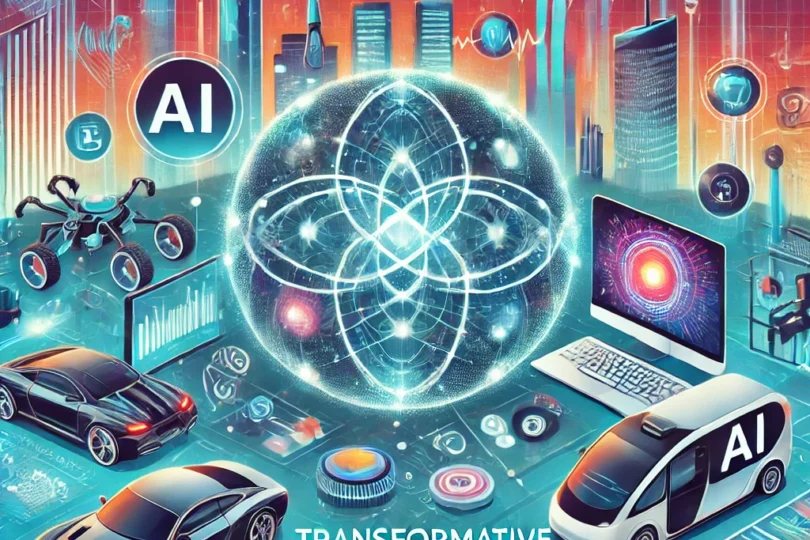Summary and Opinion
Artificial Intelligence (AI) continues to revolutionize numerous industries, bringing forth innovative solutions to complex problems and significantly enhancing efficiency. As we look ahead, three critical areas where AI is making a profound impact include generative AI, healthcare, and autonomous vehicles.
Generative AI: The capabilities of generative AI have expanded dramatically. Initially known for creating photorealistic images, generative AI is now advancing into video creation. This technology allows for the generation of high-quality video content from textual descriptions, pushing the boundaries of creative media production. As these models improve, they are being adopted by major studios for various purposes, including special effects and dubbing in multiple languages. This application not only revolutionizes content creation but also raises important questions about the ethical use and potential misuse of AI-generated media (MIT Technology Review) (Simplilearn.com).
Healthcare: In healthcare, AI is enhancing diagnostic accuracy and personalizing treatment plans. AI algorithms can analyze vast amounts of medical data to identify patterns and predict disease outbreaks. For instance, AI tools are being used to examine medical images, assisting doctors in early detection and diagnosis of diseases like cancer. These advancements lead to better patient outcomes by enabling more precise and timely interventions. The integration of AI in healthcare exemplifies its potential to transform patient care and streamline medical processes (Algoworks).
Autonomous Vehicles: AI’s role in the development of autonomous vehicles is a prime example of its transformative impact. Self-driving cars utilize AI for tasks such as obstacle detection, navigation, and decision-making in real-time. These systems rely on AI to process data from various sensors and cameras, ensuring safe and efficient driving. The technology is not limited to cars; it extends to drones and other autonomous systems, highlighting AI’s capability to handle complex transportation and logistics challenges. The progress in autonomous vehicle technology underscores AI’s potential to reshape the future of transportation and mobility (Simplilearn.com).
In conclusion, the applications of AI are vast and varied, significantly impacting numerous sectors. From generative AI in media production to advanced diagnostics in healthcare and autonomous vehicles, AI is driving innovation and efficiency. As these technologies continue to evolve, they promise to bring even greater changes, making it essential for industries to adapt and leverage these advancements to stay competitive.
Hashtags
#ArtificialIntelligence #AIApplications #TechInnovation #FutureOfAI
Backlinks to Original Articles
https://www.technologyreview.com | : | https://www.simplilearn.com | : | https://www.algoworks.com





This comment highlights the transformative impact of AI across various industries, particularly focusing on generative AI, healthcare, and autonomous vehicles. The advancements in generative AI, moving from creating photorealistic images to high-quality video content, illustrate significant progress in creative media production. These developments not only enhance efficiency in content creation but also pose ethical considerations regarding AI-generated media.
In healthcare, AI’s role in improving diagnostic accuracy and personalizing treatment plans is groundbreaking. By analyzing extensive medical data and identifying patterns, AI tools assist in early disease detection and intervention, leading to better patient outcomes. This application underscores AI’s potential to revolutionize patient care and streamline healthcare processes.
The development of autonomous vehicles showcases AI’s ability to manage complex tasks such as real-time obstacle detection and navigation. The progress in this field extends beyond cars to include drones and other autonomous systems, highlighting AI’s capacity to address intricate transportation and logistics challenges.
In conclusion, AI’s applications are broad and impactful, driving innovation and efficiency across multiple sectors. As these technologies continue to evolve, industries must adapt to leverage AI advancements to remain competitive and capitalize on the opportunities they present.